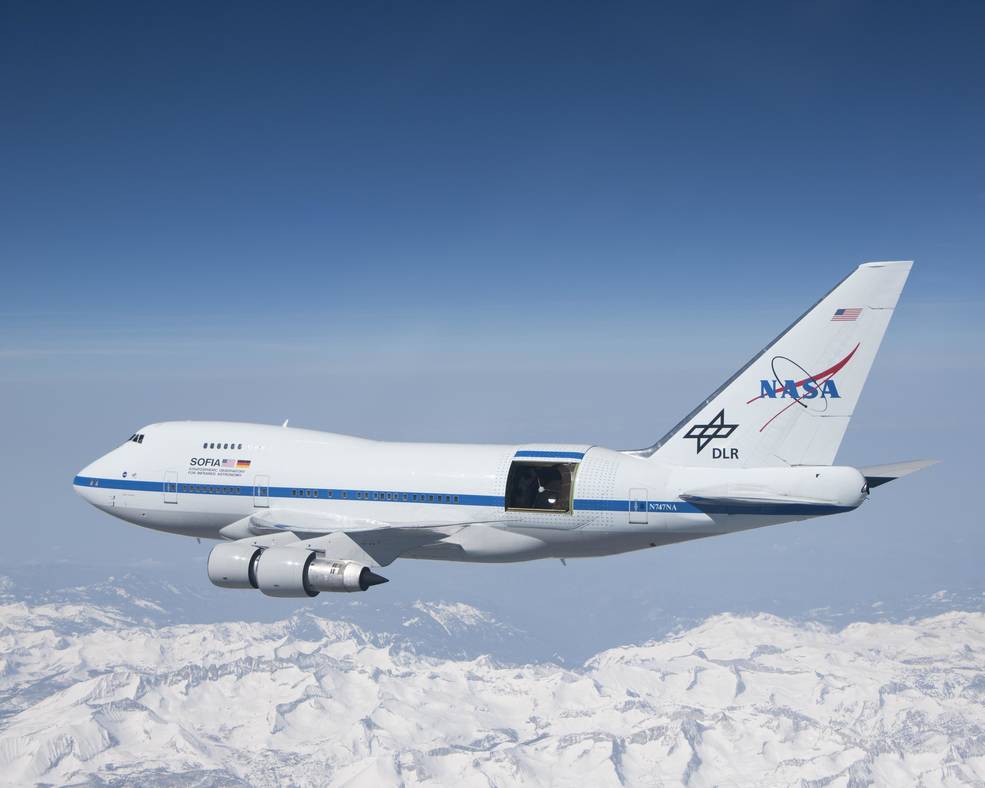(Updated) Goodbye SOFIA: NASA's flying telescope retiring this week after 8 yrs of science

After a successful eight years of science, NASA will conclude the Stratospheric Observatory for Infrared Astronomy (SOFIA) mission on September 30, 2022. The flying observatory achieved full operational capability in 2014 and currently is completing a three-year mission extension.
SOFIA, a joint project of NASA and the German Space Agency at DLR, is a Boeing 747SP airplane modified to carry a 2.7-meter (106-inch) reflecting telescope. The aircraft is maintained and operated by NASA's Armstrong Flight Research Center Building 703, in Palmdale, California.
The observatory's instruments including cameras, spectrometers, and polarimeters operate in the near-, mid- and far-infrared wavelengths, gathering data to study the Moon, planets, stars, star-forming regions, and nearby galaxies.
Over the course of its lifetime, SOFIA made some exciting discoveries including the discovery of water on the sunlit surface of the Moon in 2020. The observatory detected water molecules (H2O) in Clavius Crater, one of the largest craters visible from Earth, located in the Moon's southern hemisphere
Flying into the stratosphere at 38,000-45,000 feet, this modified Boeing 747SP jetliner lands after each flight, so its instruments can be exchanged, serviced or upgraded to harness new technologies.
The @SOFIAtelescope just embarked on its last flight. On behalf of our team, I am grateful to the dedicated scientists and engineers, including many from @DLR_en, who have contributed important science results and have done so safely. Follow along at https://t.co/1W56zvpMGo pic.twitter.com/NdeUA0YKIl
— Thomas Zurbuchen (@Dr_ThomasZ) September 29, 2022
Update
The mission team is exploring options for a fitting permanent home for this special flying observatory. NASA said that SOFIA's data from a total of 732 nights observing over the course of the mission will also be publicly available for scientists to study and conduct further research in the future.
"Even as the mission winds down, making way for the next chapter in infrared astronomy, the discoveries made from the observatory's data will go on. SOFIA's legacy and that of the entire team who made the mission fly is to have taught humanity more about the cosmos and inspired others to do the same," NASA said in a statement on Thursday.










